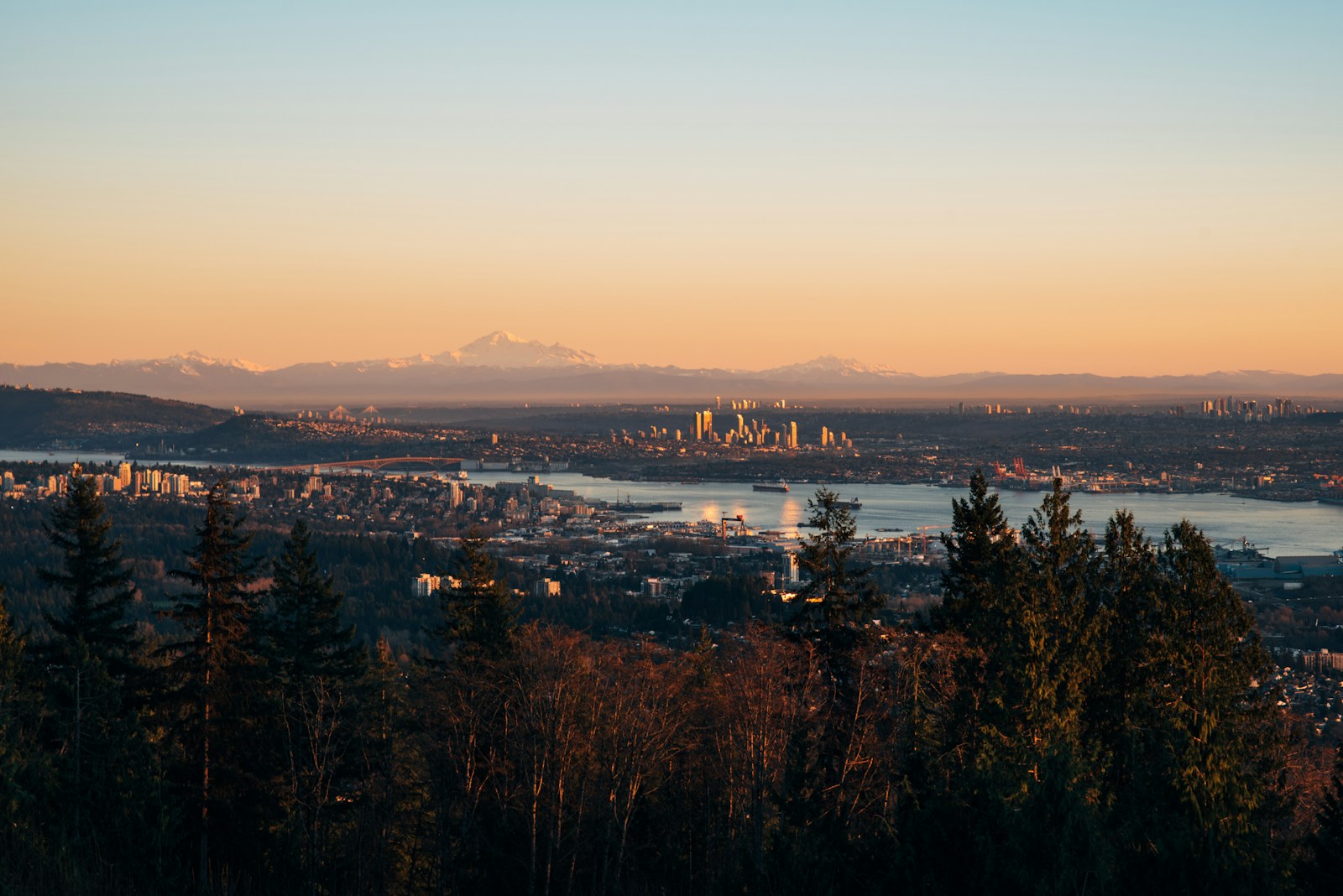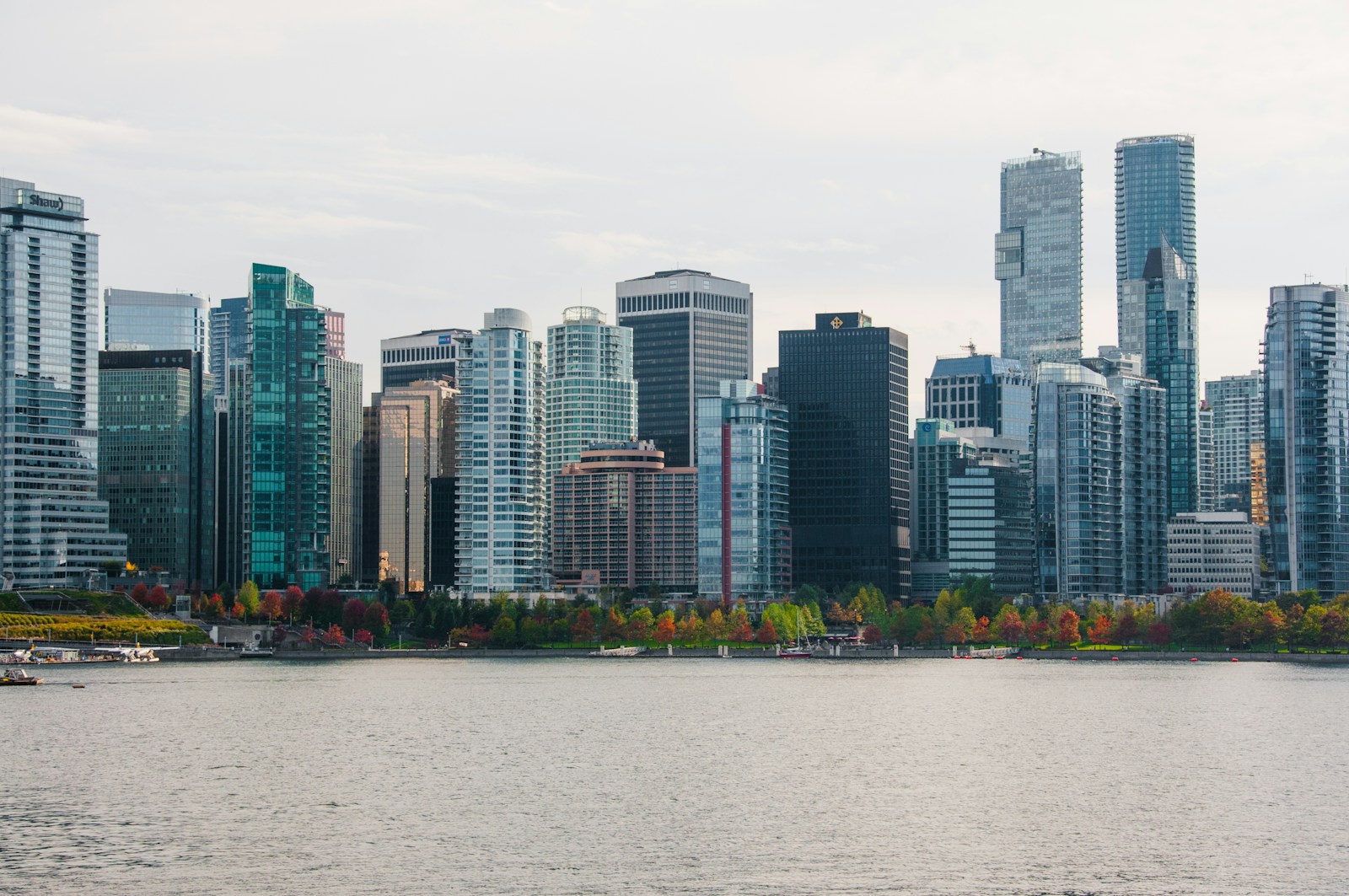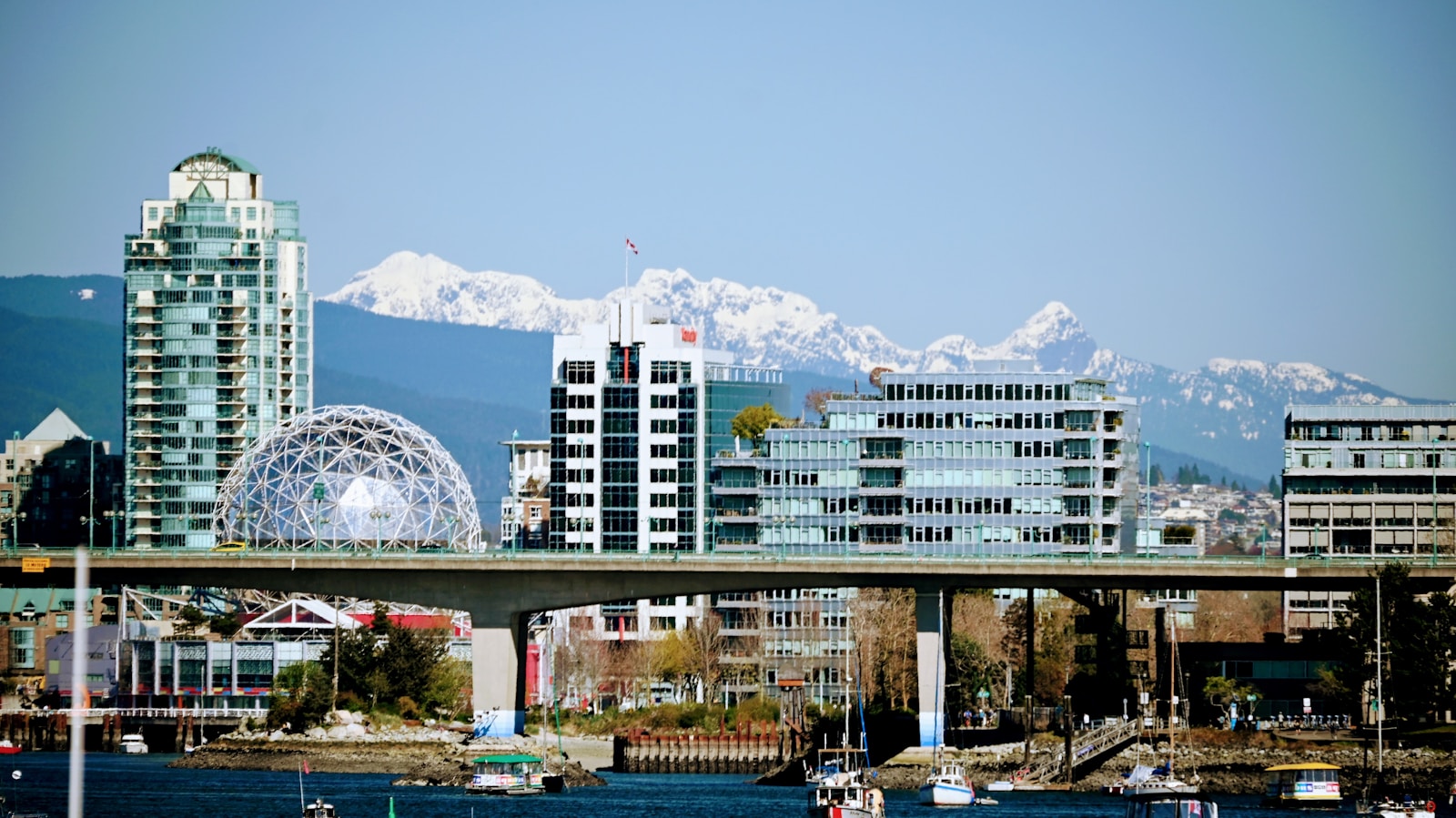Please visit our Open House at 401 199 Victory Ship Way in North Vancouver. See details here
Open House on Saturday, November 15, 2025 2:00PM - 3:00PM
Please visit our Open House at 401 199 Victory Ship Way in North Vancouver. See details here
Open House on Saturday, November 15, 2025 2:00PM - 3:00PM
Please visit our Open House at 401 199 Victory Ship Way in North Vancouver. See details here
Open House on Saturday, November 8, 2025 2:00PM - 3:00PM
Please visit our Open House at 401 199 Victory Ship Way in North Vancouver. See details here
Open House on Sunday, November 9, 2025 2:00PM - 3:00PM

Selling your home in Vancouver can be one of the most rewarding experiences of your life but it can also feel overwhelming without the right strategy. From pricing your property to preparing for showings and negotiating offers, each step requires precision, timing, and market insight.
Whether you’re moving up, downsizing, or relocating, this guide will walk you through how to sell your home successfully in today’s Vancouver market.
The first step to selling your home is understanding the current real estate landscape. Vancouver’s housing market is known for its unique rhythm; shaped by limited land supply, strong demand, and diverse neighbourhoods that each have their own micro-trends.
In 2025, higher inventory levels have created a more balanced market across Greater Vancouver. This means buyers have more options, and sellers need to price strategically and present their homes beautifully to stand out.
Before listing, talk to us at Coastal Key Homes about recent comparable sales in your area, the average days on market, and what price range will generate the most interest.
First impressions are everything. The goal is to make your home feel both inviting and move-in ready. Here’s how:
Declutter and depersonalize. Create a clean, neutral canvas that helps buyers visualize their own life in the space.
Deep clean and repair. Fix minor issues like scuffed walls, leaky faucets, or dated light fixtures, small upgrades make a big difference.
Stage strategically. Staging can help highlight your home’s best features and maximize perceived value.
Enhance curb appeal. The exterior sets the tone. Fresh landscaping, clean windows, and a welcoming entryway go a long way.
Pricing can make or break your sale. List too high, and your home could sit on the market. Price too low, and you might leave money on the table.
A smart pricing strategy combines current data with experience. A skilled REALTOR® will evaluate comparable properties, market demand, and seasonal timing to position your home competitively — often using a pricing band that attracts maximum attention in online searches.
In Vancouver, where buyers often compare similar listings within tight geographic zones, even a $10,000–$20,000 difference can determine how quickly your home sells.
Today’s buyers start their home search online, which means your digital presence needs to stand out. High-quality visuals and thoughtful marketing create the emotional connection that turns clicks into showings.
Here’s what strong marketing looks like in 2025:
Professional photography and video tours that highlight your home’s best features.
Social media campaigns targeting qualified buyers across Vancouver and beyond.
Virtual open houses and 3D walkthroughs for added convenience.
Customized property websites and MLS exposure to reach a broad audience.
At Coastal Key Homes, we combine storytelling, lifestyle branding, and data-driven marketing to ensure your listing connects with the right buyers, locally and internationally.
When offers start coming in, your REALTOR® will guide you through the negotiation process to secure the best possible outcome. It’s not always just about price - closing dates, conditions, and deposit terms can all make or break a deal.
Your agent will help you:
Evaluate multiple offers and identify the strongest one.
Negotiate strategically while protecting your interests.
Manage the inspection, financing, and legal process smoothly through to closing.
Having an experienced negotiator on your side ensures you walk away with the best value and peace of mind.
Selling your home is both a financial and emotional decision. The right strategy can make all the difference between an average experience and an exceptional one.
At Coastal Key Homes, we specialize in marketing, negotiation, and presentation strategies that unlock the full potential of every property. Whether you’re ready to list or simply curious about your home’s current value, we’d love to help you take the next step with confidence.
📞 Contact Coastal Key Homes today to schedule your personalized home evaluation and discover how we can help you sell your home for top value in today’s Vancouver market.

On October 29, 2025, the Bank of Canada reduced its policy (overnight) rate by 25 basis points to 2.25%. This is the second consecutive cut after earlier moves in 2025. The central bank explained that the decision was driven by slower economic growth, uncertainty from U.S. trade actions, and inflation expected to remain close to its 2% target. The goal is to support the economy as it adjusts to these global challenges.
Below, we explain in simple terms how this cut is likely to affect Vancouver’s housing market, followed by current updates on local market conditions as of October 2025.
Variable-rate borrowers see an immediate benefit. Lenders usually adjust their prime rate shortly after a Bank of Canada change. This means monthly payments for variable-rate mortgages and home equity lines of credit will likely decrease.
Fixed mortgage rates respond more slowly. Fixed rates depend on longer-term bond yields, which do not always fall in line with the overnight rate. However, rate cuts can gradually lead to lower fixed-rate offerings over time.
Lower borrowing costs can increase demand. As mortgage payments become more affordable, more buyers may enter the market. This often leads to increased competition, depending on how much supply is available.
Economic confidence still matters. The Bank of Canada noted that exports, business investment, and employment remain soft. Lower rates help, but job security and income confidence will continue to influence buyer behavior.
1. Benchmark prices show modest softening.
The MLS® Home Price Index composite benchmark for Metro Vancouver sits around $1,142,100, roughly 3% lower year-over-year. Detached homes have seen slightly more price movement than apartments, while townhomes remain relatively steady.
2. Inventory is climbing.
Listings have increased noticeably across the region, giving buyers more selection. This rise in inventory has shifted the market closer to balanced conditions in many neighborhoods.
3. Sales are slightly lower.
The Canadian Real Estate Association (CREA) reported a small month-over-month decline in home sales for September 2025. Economists point to affordability challenges and broader economic uncertainty as reasons for the slowdown.
4. Segment differences are emerging.
Condos and apartments are showing greater price flexibility, which improves affordability for entry-level buyers and investors.
Townhouses have remained more stable, especially in suburban areas where demand is steady.
More listings and slightly lower rates create better conditions for buyers.
With borrowing costs easing and more homes available, buyers have more leverage to negotiate prices, closing dates, and conditions.
Prices may stabilize rather than drop sharply.
Current data suggests the market is cooling gradually rather than crashing. The recent rate cut may help prevent deeper declines, though economic headwinds will likely limit major price rebounds in the short term.
Market performance will vary by location.
High-demand, low-supply neighborhoods will likely remain resilient, while condo-heavy or suburban areas with new listings could see continued price moderation.
Investors may re-enter the market.
Lower financing costs improve rental property cash flow potential. Still, investors will be mindful of rent controls, taxes, and regional regulations.
Variable-rate homeowners: Expect a reduction in monthly payments as prime-linked mortgage rates drop. Contact your lender to confirm the timing of any changes.
Fixed-rate borrowers: Watch bond yields and shop around at renewal. Competitive lender activity may bring attractive options.
Home buyers: Lower rates improve purchasing power, while increased inventory allows for more choice and less pressure to overbid.
Sellers: Pricing strategy is key. Homes listed at fair market value will move, while overpriced listings may linger as buyers become more selective.
Buyers: Get pre-approved under both fixed and variable scenarios. Ensure your budget accounts for property taxes, insurance, and strata fees.
Sellers: Review comparable sales from the past 30 to 60 days. Consider staging or small updates that enhance value.
Renewing homeowners: Begin renewal discussions early and compare multiple offers.
Investors: Reassess cash flow projections under the new rate environment and monitor rental market trends.Final thoughts
The latest Bank of Canada rate cut provides modest relief to homeowners and buyers across Vancouver. While it may not ignite a rapid housing surge, it should support market stability through the remainder of 2025. Buyers can expect improved affordability and more negotiation power, while sellers will need to focus on accurate pricing and presentation to stand out in a more balanced environment.
Please visit our Open House at 401 199 Victory Ship Way in North Vancouver. See details here
Open House on Saturday, November 1, 2025 2:00PM - 3:00PM
Please visit our Open House at 401 199 Victory Ship Way in North Vancouver. See details here
Open House on Sunday, October 26, 2025 2:30PM - 3:30PM
Please visit our Open House at 401 199 Victory Ship Way in North Vancouver. See details here
Open House on Saturday, October 25, 2025 2:00PM - 3:00PM
Please visit our Open House at 401 199 Victory Ship Way in North Vancouver. See details here
Open House on Saturday, October 18, 2025 2:00PM - 3:00PM
Please visit our Open House at 401 199 Victory Ship Way in North Vancouver. See details here
Open House on Sunday, October 19, 2025 2:00PM - 3:00PM

When homeowners ask, “What’s my home worth?”, agents rely on both data and market expertise. While it’s not an official appraisal, the Comparative Market Analysis (CMA) remains the gold standard and a powerful foundation for pricing strategy.
A CMA estimates a home’s fair market value by analyzing recent, nearby comparable sales—known as “comps”:
Agents typically select 3–6 nearby homes sold within the past 3 to 6 months. The closer and more similar, the better.
Comps are compared on factors like square footage, number of bedrooms and baths, lot size, age, condition, upgrades, and amenities (like a pool or view).
Each comp is adjusted up or down to account for differences versus the subject home, using a sales comparison grid.
Agents also factor in local market conditions, such as whether it’s a buyer’s or seller’s market, shifting supply/demand trends, or recent interest rate changes.
This results in a realistic pricing range tailored to neighborhood trends and property-specific attributes.
Agents typically use professional tools integrated with MLS data to automate and enhance CMA reports:
cloudCMA: Generates sleek, branded CMA reports and interactive listing presentations. It pulls live MLS data and enables digital collaboration during listing presentations.
RPR (Realtors Property Resource): A popular platform used by many agents for pulling comps, pricing insights, and built-in analytics.
HouseCanary and other valuation platforms provide instant property insights and AVM-driven estimates, which agents often use as supplemental data.
These tools help agents efficiently generate accurate, well-designed CMA reports—with visuals such as price-per-sq-ft comparisons, listing history, charts, and hyper-local market commentary.
While the CMA is the agent’s core tool, others include:
Broker’s Price Opinion (BPO): A fee-based, informal valuation by a licensed broker or agent, often used by banks in foreclosure, refinancing, or short-sale scenarios. It involves exterior and/or interior evaluation and analysis of up to six comps (three active, three sold).
Automated Valuation Models (AVMs): Algorithm-driven estimates (like Zillow Zestimate, Redfin Estimate) based on public data and regression modeling. Useful for quick estimates, but less accurate than agent- or appraiser-generated values.
Professional Appraisals: Conducted by licensed appraisers, these are more formal and required for mortgage lending. They use the sales-comparison approach along with cost and income-based methods when relevant.
While tools can pull data, local experience is critical. As one expert noted:
“A CMA uses data, but it’s really an art. Your local knowledge can account for neighborhood shifts, upcoming developments, or school changes that algorithms may not capture.”
A seasoned agent can see nuances such as upcoming rezoning or neighbourhood revitalization—that a raw CMA or even an appraiser may overlook.
Sellers: Getting a CMA from a knowledgeable agent is often free, and gives you a competitive, data-backed pricing strategy without committing to an appraisal.
Buyers: An agent’s CMA helps inform whether a seller’s asking price makes sense relative to recent local sales.
Always check multiple data points: While AVMs offer quick range estimates, a well-prepared CMA goes deeper into tailored comparables and agent insight.
Real estate pricing is both science and craft. The CMA is the agent’s backbone method, combining:
Recent comparable sales
Home-specific adjustments
Market trend analysis
Local knowledge and judgment
Beyond this, tools like BPOs and AVMs support the process. But the best results come when technology meets experience and a trusted Realtor interprets data with context.

Welcome to 401–199 Victory Ship Way, an exquisite new listing that captures the very best of Vancouver’s coastal lifestyle. Situated in the heart of Lower Lonsdale, this beautiful North Vancouver condo combines the elegance of a luxury residence with the vibrant energy of the waterfront community that surrounds it.
This three-bedroom, three-bathroom home offers 1,458 square feet of thoughtfully designed living space, complemented by an expansive 300-square-foot deck, perfect for morning coffees or sunset gatherings with friends. Every corner of this luxury listing has been crafted to balance comfort and sophistication, with tile flooring, hardwood laminate throughout, and a bright, open-concept layout that seamlessly connects indoor and outdoor living.
Large floor-to-ceiling windows invite natural light to fill the home, framing breathtaking views of the North Shore and city skyline. Whether you are hosting dinner with friends or winding down after a day of exploring the city, this condo delivers an exceptional sense of serenity and style.
Residents of Victory Ship Way enjoy exclusive access to the Pinnacle Hotel’s world-class amenities. From invigorating workouts in the fully equipped gym to relaxing afternoons by the pool and jacuzzi, this residence offers a five-star lifestyle right at home. It is not just a condo, it is an experience designed for those who appreciate the finer things in life.
Step outside your door and into one of North Vancouver’s most sought-after neighbourhoods, Lonsdale Quay. This area has quickly become the shining star of North Vancouver real estate, known for its walkability, waterfront views, and endless dining and entertainment options.
Start your mornings at Posh or 49th Parallel Coffee, grab a bite at Nook, Joey Shipyards, or Ignite Pizzeria, and enjoy a fresh seafood dinner at Fishworks, all within steps from home.
In the summer, the North Vancouver Shipyards Night Market comes alive with local vendors, live music, and unbeatable views. When winter arrives, it is short walk to skating at the quay or just a short drive to some of the best skiing in the world, from Grouse Mountain to Cypress and Seymour.
And for those focused on wellness, Tality Spa, featuring a cold plunge and sauna, is right nearby, the perfect place to recharge and unwind.
This residence is more than just a place to live, it is a statement of coastal luxury. Whether you are searching for a new Vancouver listing that offers space, amenities, and an unbeatable location, or looking to invest in one of the most beautiful condos in Vancouver, 401–199 Victory Ship Way stands out as a must-see.
Join us for our Open Houses:
Saturday, October 11th, 2:00 PM – 4:00 PM
Sunday, October 12th, 2:00 PM – 3:00 PM
Do not miss your chance to experience this extraordinary Vancouver property firsthand.